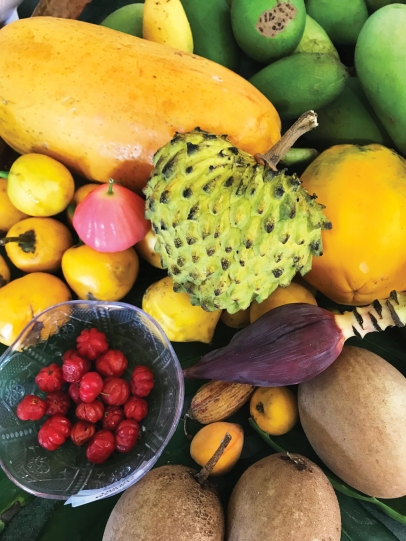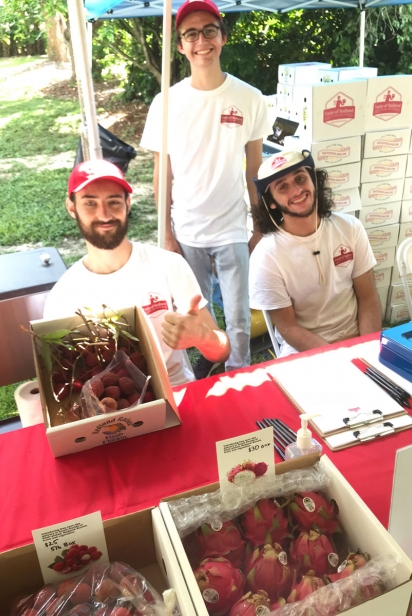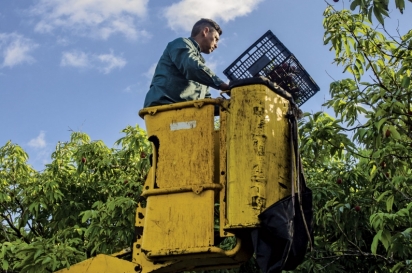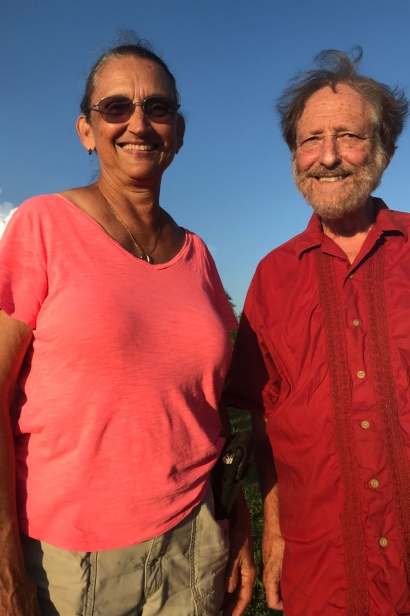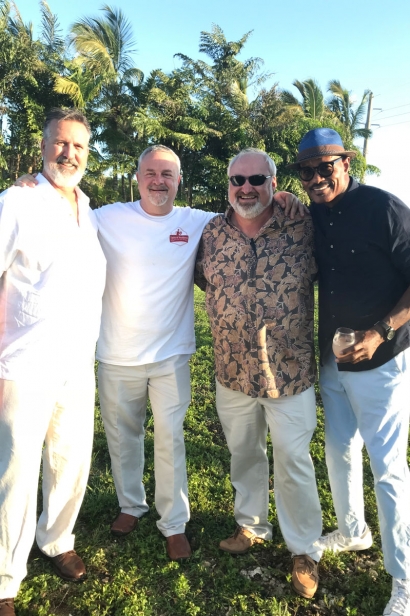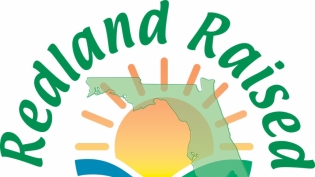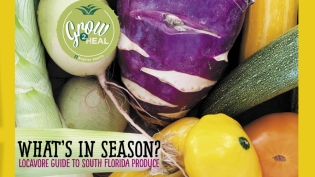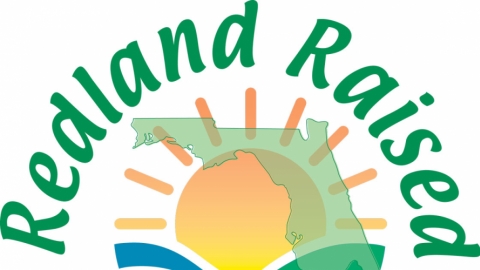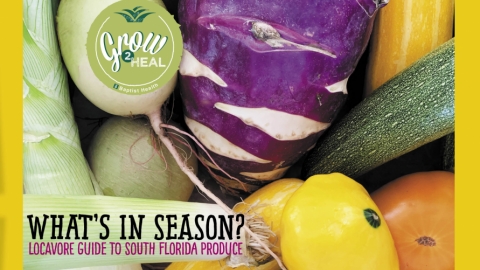Rooting for the Redland
A lineup of non-farmers – united by their love of South Florida's agricultural community – is determined to make sure the food on your plate comes from our own backyard.
The Team
The folks behind Taste of Redland are accomplished veterans in fields that do not involve tomatoes. The leader is Michael Huter, a businessman who has worked in the art and publishing worlds and an award-winning documentary filmmaker whose works include a short on pop artist Andy Warhol’s friends Ultra Violet and Taylor Mead. There’s Ilana Vardy, who has worked with Huter for nearly a decade, who has been directing art fairs for 25 years. Suzanne Pallot and Louis Canales of Source Miami do event planning, logistics and management support for major companies in South Florida. You probably recognize Steve Haas, a familiar name in the greater Miami culinary and tourism scene, who came up with the Miami Spice restaurant promotion and owned the restaurant City Hall. Only Louie Carricarte has spent years getting his hands dirty in agriculture, as owner of Unity Groves and Grove Services, one of the largest growers, packers and shippers in South Florida.
Together, they are committed to raising awareness of South Dade’s vibrant agricultural district, which supplies winter vegetables to much of the United States in the winter and tropical produce the rest of the year. Specifically, they’re bringing Redland-raised produce directly into South Florida homes and restaurants by offering free, next-day delivery using the United States Postal Service. They’ve started small, sending out boxes of lychees during its short, early-summer season, followed by mangos and other produce. Later in the year, they will offer a Taste of Redland Dinner Series, where top chefs will create meals using seasonal produce at venues throughout South Miami-Dade. Along the way, they’re appearing at events and markets to spread the word.
The Pitch
Taste of Redland’s concept is hardly revolutionary: Giving South Floridians easy access to fruits and vegetables grown within a 100-mile radius so they don’t have to rely on imports shipped in thousands of miles away.
Stroll through your supermarket’s produce department. You’ll see mangos from Mexico. Papaya from Guatemala. Avocado from Mexico. It was the discovery that nearly all of the produce grown in the Redland gets shipped out of Florida, while supermarkets import fruits and vegetables from other countries, that baffled Michael Huter.
“I mean, how is this even possible?” he asks. “When people hear this, they are shocked, mystified – they had no idea.” The answer he got from growers was, well, this is just the way it is.
Carricarte, the shipper, explains. “We ship pallets – avocado, mango, guava, longan, tropicals – all over the country. The challenge is to distribute locally. We used to deliver after work,” he says, but the small quantities and many stops were not cost-effective.
For Taste of Redland, Carricarte says they will set aside part of their produce to pack and deliver to the local market via the post office.
Packaging also enters into the process. Big shippers rely on various techniques to harvest, store, process and package produce before it makes its long journey to the market, where it also spends time until customers buy it. Then, it may sit unused in the refrigerator.
The aim for Taste of Redland is to harvest ripe produce and deliver it quickly to customers – making it fresher, more flavorful and more nutritious.Their first crop, lychee, is notoriously perishable, so they turned to a special bag that extends its freshness.
They’re the first in Florida to use it, says Jerry Krupnick of Castplast, representing the firm that creates the film.
“Agronomists in Israel examine each [food] item and determine the best atmospheric conditions inside the bag,” he says. They determine ideal breathability, humidity, moisture, then they adjust packaging accordingly, even punching holes in a pattern.”
“Michael is the pioneer here. What’s interesting is that he went all in on our bags for his lychees,” says Krupnick. “The longer you can preserve freshness, the better.” Lychees are picked, packed and immediately sent to customers, where the packaging helps them keep it fresh longer. And it will taste better. “If we’re able to take what’s ripe, ship it – instead of waiting – we’ll change the way food tastes,” says Huter.
The Players
Next up: Getting the word out about Taste of Redland to farmers, consumers and the culinary community. As relative newcomers to the Redland farming community, Huter and his team hosted an event on their properties – Huter’s Takoda Farmstead and, around the corner, Vardy’s TILT Farms, a refurbished 1929 house on an avocado and lychee grove, anchored by a massive banyan tree. They sold boxes of lychees and mangos at the Summer Fruit Festival at Fruit and Spice Park in June and signed up for the Lychee Celebration at Schnebly Redland’s Winery and Brewery.
Longtime restaurateur Steve Haas is helping connect South Florida chefs with Taste of Redland. “We are guaranteeing tree-to-table produce sent in 24 hours,” he says. “Chefs can order and receive things we only grow here without having to wait. Just for creativity, it’s a great thing.” To buy from the site, chefs register to get special pricing.
The Dinner Series, slated for fall, calls on the skills of Haas, Pallot and Canales in organizing special events at different venues throughout the community. Local chefs will create menus with seasonal produce at different prices, showcasing both the fruits and vegetables as well as the tropical setting.
Cheering the Home Team
While they may be the catalyst for sparking local interest in the region, Taste of Redland didn’t invent these ideas. Nearly 20 years ago, it was Gabriele Marewski who bought an abandoned avocado grove and turned it into Paradise Farms. She built a market for edible flowers and organic microgreens for chefs and consumers and debuted Dinners in Paradise, where local chefs created farm-to-table meals on her property, which she recently sold.
In 2009, the Redland Raised branding project was launched by Miami-Dade County, labeling local produce in supermarkets so customers can easily spot it. And local produce is available to customers in farmers markets that have been growing in number, sourced from Redland farms like Bee Heaven Farm, LNB Groves, V&B Farms, Cool Runnings, Possum Trot, Teena’s Pride, Green Dean and French Farms, among others. Over the years, foragers have scoured local farms and supplied chefs with produce.
But efforts haven’t always been consistent. Now, Huter believes, the timing is right to formally introduce the fruits of this treasured region to consumers and chefs, now that Miami is a culinary destination and consumers care about what they eat and where it comes from. “We want to instill pride in South Florida – get people excited about what’s grown here,” he says.
For him, this is easy. He recalled the day, decades earlier, when he drove to the Keys from Washington, DC, to escape a snowstorm. It was late and he couldn’t find a hotel, so he pulled over in Florida City and fell asleep in his car. He woke up to find an avocado on his windshield – he discovered he was in the middle of a grove. He never forgot that experience. Since moving here three years ago, Huter has fallen in love with the Redland and wants everyone else to join in.
“In the same way South Florida reveres its sports teams, people should revere what’s grown here,” he says.
The success of Taste of Redland, in Huter’s eyes, will be measured in more than in dollars and cents. In addition to supporting the community and eating healthier food, he cites the social responsibilities of reducing the carbon footprint and preserving the area. The ultimate measure? “Doing the right thing,” he says.
TASTE OF REDLAND
Order boxes of seasonal produce here.
Sign up for information about the Dinner Series, Nov.-May, here.


